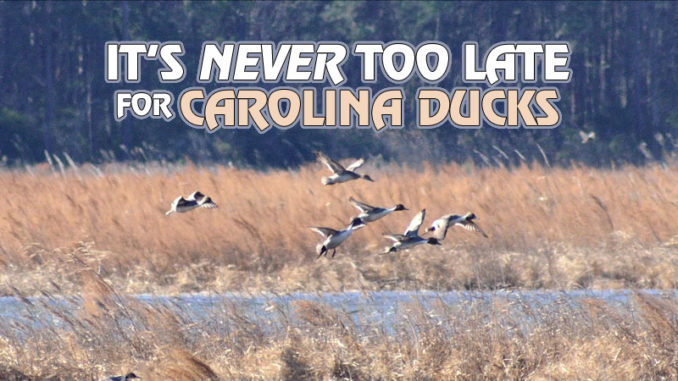
As duck season enters its back half, the places you hunted in previous months may no longer hold birds. It might take a little scouting to get into the right spots.
A 60-day duck season sounds like an eternity until it arrives.
Much of the first half of the season is divided up to give hunters the chance to take a few birds early in the migration.
But as Jan. 1 rolls around, a duck hunter’s opportunities are dwindling fast; it’s now or never. Some of the best days in the blind are in the last three weeks, in places most hunters fail to dream about finding ducks this time of year.
Seek out and find the places sheltered from most hunters, and ducks will be there in droves.
Waterfowl species are attracted to rich food sources during their migration to fuel their high metabolisms. And while a solid food source is vital to the survival of the flock, protection from hunters and other lethal threats is just as important.
Of the nation’s 14 million hunters, only 1.5 million target ducks annually, but that’s still a lot of hunters chasing them across their North American range. Hunting begins on the breeding grounds of the north and lasts all the way to the end of the migration at the end of January. From the time the season opens in Canada on Sept. 1 to end of the January in the lower 48, surviving birds learn where to go, where to eat and where to avoid a constant spray of steel and tungsten death pellets penetrating their feathers.
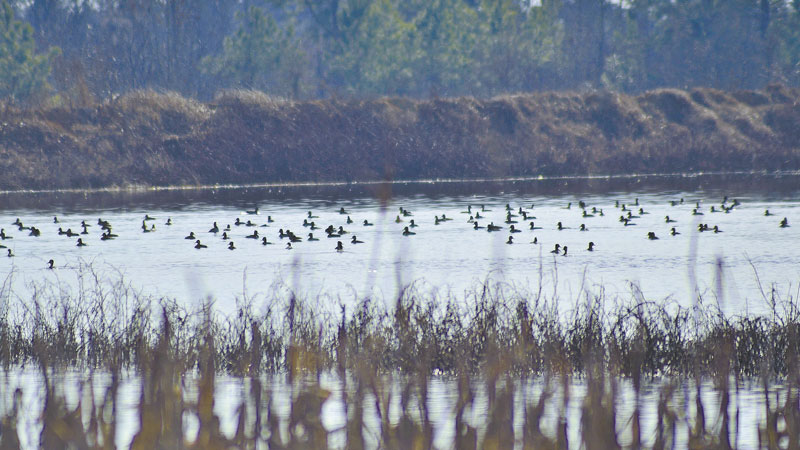
Ducks have learned from the pressure they’ve received
Ducks receive tons of pressure all season, and they learn to locate places that are void of hunters to loaf and to remain alive. Bryan DeHart of Manteo, N.C., the founding partner of and a real-estate broker for Mossy Oak Properties of North Carolina, spends plenty of time selling top-notch hunting properties. When he isn’t, he’s guiding fishermen in the Roanoke Sound, chasing whitetail bucks in Halifax County or shooting a limit of ducks in eastern North Carolina.
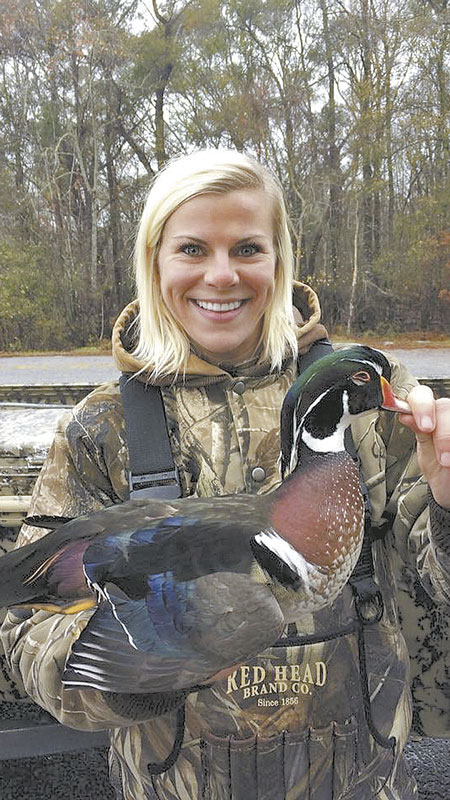 “Eastern North Carolina almost has more water than dry land,” said DeHart (252-473-8632), “but that is one reason why the ducks, geese and tundra swans migrate into our state for the winter. We have an abundance of food and cover in a flooded environment.”
“Eastern North Carolina almost has more water than dry land,” said DeHart (252-473-8632), “but that is one reason why the ducks, geese and tundra swans migrate into our state for the winter. We have an abundance of food and cover in a flooded environment.”
In addition to the 3 million acres of natural sounds, rivers, swamps and creeks, eastern North Carolina is home to one of the greatest concentrations of waterfowl impoundments on the eastern seaboard. Without a doubt, ducks have an endless supply of flooded territory to call their temporary home, but hunters are also getting more efficient at finding and taking home a daily limit of birds.
“Ducks are getting hunted everywhere,” DeHart said. “In our area around the Pamlico and Albemarle sounds, ducks typically raft up offshore to loaf during the day, but a lot of hunters around here have started using scissor rigs, and ducks are starting to find other areas to hide and loaf.”
Ducks are accustomed to flying long distances to find what they want, and with the abundance of flooded habitats across the Carolinas, ducks can seek and find places to avoid danger.
Ducks take refuge
Most hunters typically target the same general areas throughout the season, but as hunting pressure accelerates, successful hunters learn to find ducks in sheltered places where they don’t normally venture on an annual basis.
“If you want to find sheltered ducks, you have to work at it, and you have to work harder than the rest of the guys to find where the ducks are going,” he said. “You have to find a spot that nobody else is hunting; it could be a cove off a main creek, a remote river channel, beaver pond, swamp or a unique place in the middle of the marsh that is hard to access.”
Scouting pays dividends
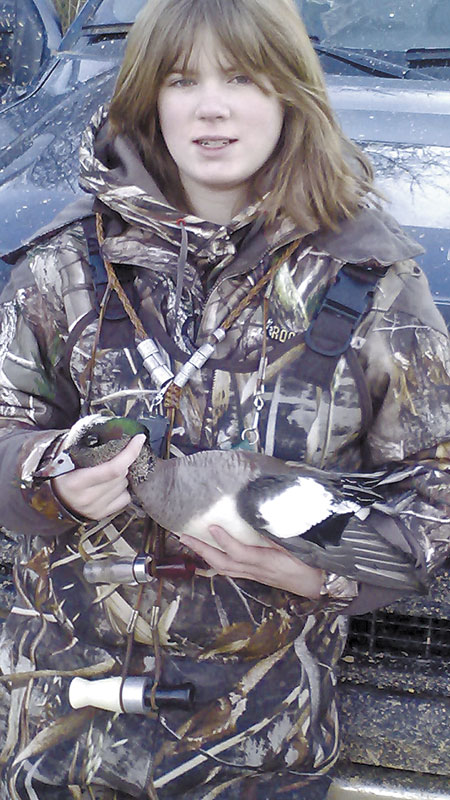
Hunters can scout during the day to see where ducks are or observe where the ducks are flying during hunts. DeHart pays attention to where ducks are going on his hunts and then uses Google Earth to determine their potential destinations.
“A lot of these places are small potholes that aren’t accessible to the typical duck boat,” he said. “You have to be willing to walk a lot, too, but the hunting can be worth it when you find a hole with several hundred ducks using it during the middle of the day.”
DeHart also encourages hunters to respect all property rights. Even though there is a plethora of open-access, public land opportunities in the Carolinas, there is also a lot of private land where ducks will go. Hunters should always check land ownership and ask permission before scouting or hunting on any properties.
“If you are wiling to work and walk to these areas, the hunting can be really good for a few hunts, and then you may have to go look again,” he said.
Remember, ducks have moved to these places for protection and will not stay long when their protection veil has been lifted.
Duck hunting is one of the most enjoyable methods of outdoor recreation on the planet. And the last month of the season in the Carolinas can be one of the best times of the year to go. For the best action, seek and find the loafing areas away from the common hunting zones to bring home a quick limit.
Deer leases open up prime duck opportunities
White-tailed deer remain the most-targeted game species in the United States, and it’s one of the most-popular hunting sports in the Carolinas. But as deer season closes in the two states on Jan. 1, deer hunters evacuate their hunting properties, opening up thousands of acres of potential loafing areas for duck hunters.
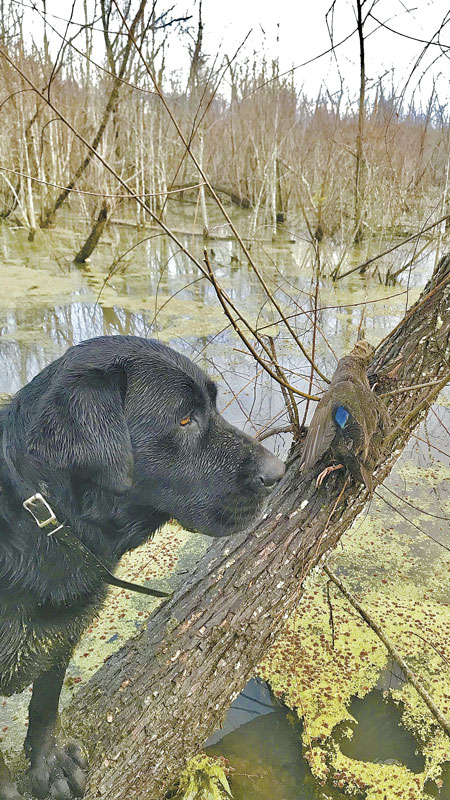
Bryan DeHart of Manteo, N.C., spends countless hours scouting properties for his clients at Mossy Oak Properties. According to DeHart, many large properties dedicated to deer hunting hold large flocks of ducks late in the season when deer stands are empty.
“Most deer-hunting properties have a lot of water on them in swamps, beaver ponds, runs, and sometimes even man-made ponds,” said DeHart (252-473-8632). “These swamps and flooded areas have been harassed by deer hunters for several months. But after Jan. 1, they are out of the woods, off the roads and off these properties.”
When under pressure, ducks are constantly looking for sheltered areas away from hunters. As soon as deer season closes, these large properties open prime habitats for ducks to go and rest. With a little scouting and time investments looking for ducks, hunters can find a gold mine right in the heart of their hunting neighborhood. Hunters can end their duck season on an epic note in places long from where they typically toss out their decoy set.
Click here to read more about duck hunting in the Carolinas.

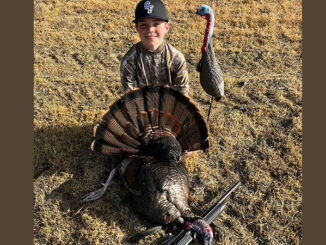

Be the first to comment